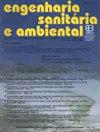Environmental and economic evaluation of coffee residues
IF 0.5
4区 环境科学与生态学
Q4 WATER RESOURCES
引用次数: 1
Abstract
ABSTRACT Brazil is a country of agricultural culture, and for over a hundred years has been the largest coffee producer. Thus, the work proposes alternatives for the use of agricultural residues from coffee production, analyzing them from an environmental and economic point of view. A coffee crop was selected from the municipality of Santa Rosa da Serra (Minas Gerais, Brazil), and three scenarios were established. Scenario 1: husk is discarded outdoors; scenario 2: energy use of the husk for gasification and subsequent production of electricity; scenario 3: use of the husk as an organic fertilizer. An economic and environmental analysis was conducted from these three scenarios. The gasification technology with the coffee husk, although technically feasible, according to the economic analysis becomes unfeasible, since the value of this electric generation was higher than the other generation values. Scenarios 2 and 3 that applied sustainable practices resulted in negative values for the environmental impacts of water depletion and depletion of fossil fuels, proving the benefits of such practices. The gasification process needs technological development to make the enterprise economically viable. Sustainable practices in coffee cultivation bring environmental benefits in the short and long terms.咖啡残留物的环境和经济评价
摘要巴西是一个农业文化国家,一百多年来一直是最大的咖啡生产国。因此,这项工作提出了使用咖啡生产中的农业残留物的替代方案,并从环境和经济的角度对其进行了分析。从Santa Rosa da Serra市(巴西米纳斯吉拉斯)挑选了一种咖啡作物,并确定了三种情景。场景1:外壳被丢弃在户外;情景2:气化和随后发电所用的稻壳能源;场景3:使用果壳作为有机肥料。从这三种情况进行了经济和环境分析。根据经济分析,咖啡壳气化技术虽然在技术上可行,但由于该发电量高于其他发电量,因此变得不可行。采用可持续做法的情景2和情景3导致水资源枯竭和化石燃料枯竭对环境的影响为负值,证明了这种做法的好处。气化过程需要技术发展,使企业在经济上可行。咖啡种植的可持续做法带来了短期和长期的环境效益。
本文章由计算机程序翻译,如有差异,请以英文原文为准。
求助全文
约1分钟内获得全文
求助全文
来源期刊

Engenharia Sanitaria E Ambiental
WATER RESOURCES-
CiteScore
0.90
自引率
20.00%
发文量
101
审稿时长
>12 weeks
期刊介绍:
Information not localized
 求助内容:
求助内容: 应助结果提醒方式:
应助结果提醒方式:


